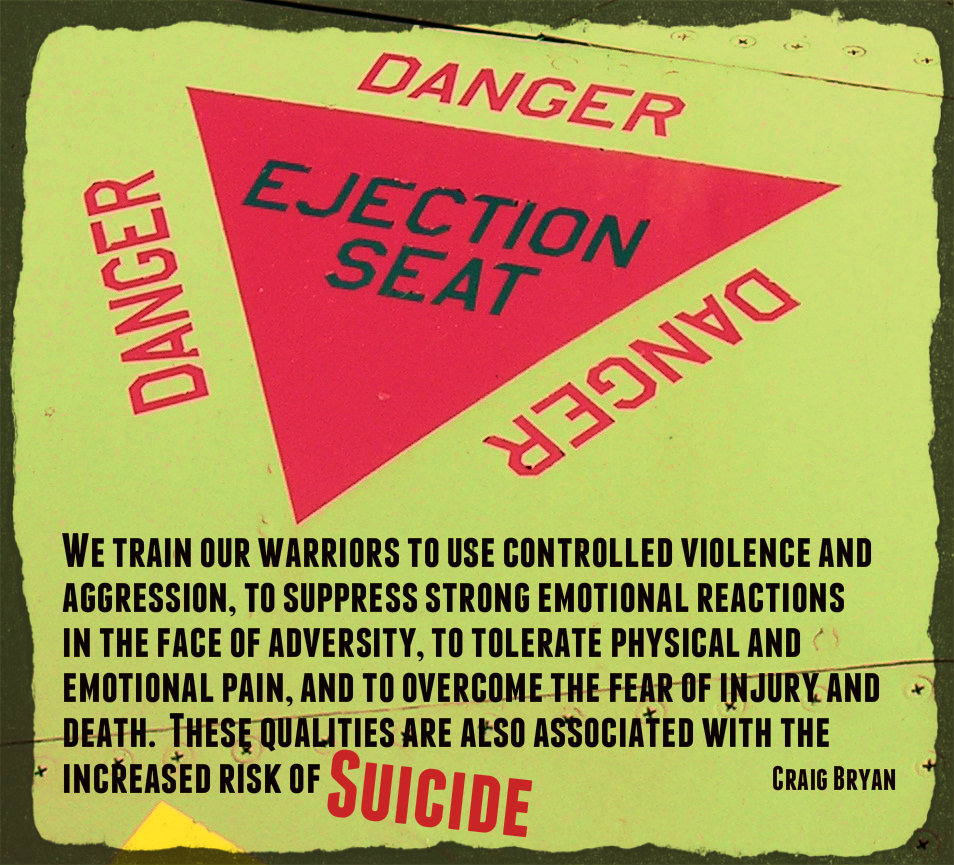Becoming a good soldier, a good cop, or a good fire fire fighter and being a warm, engaged, vulnerable partner/parent is difficult. Because being a good public protector means not staying in control, dominating, exerting power and never showing vulnerability…it’s a requirement to stay alive on the battle field…
…and sets that same public protector up for struggles in their personal lives.
Police, firefighters, paramedics, and military are trained to courageously run towards the very danger that the rest of us very naturally run from. Let me speak about the military first…and then you can extrapolate to the other professions of public protection.

Brené Brown (whose new book, Daring Greatly, I’ve been reading and quoting to anyone standing near me!) writes the following, from her American perspective:
The statistics on post-traumatic-stress-related suicides, violence, addiction, and risk-taking all point to this haunting truth: For soldiers serving in Afghanistan and Iraq, coming home is more lethal than being in combat. From the invasion of Afghanistan to the summer of 2009, the US military lost 761 soldiers in combat in that country. Compare that to the 817 who took their own lives over the same period. (page 153)
Brown’s research indicates it comes from a “either/or” mentality…you are either a victim or the dominator. In combat, it is often that simple. Soldiers need to be trained that way to be effective and have the best chance of staying alive. Some folks may go into the military because they see the world in this way, and the military (or other careers that are adversarial like law enforcement)…or they may be changed to see the world that way. In either case, Brown states from her research with these folks:
One issue that made these interviews some of the most difficult was the honesty with which people spoke about the struggles in their personal lives—dealing with high-risk behaviours, divorces, disconnection, loneliness, addiction, anger, exhaustion. But rather than seeing these behaviors and negative outcomes as consequences of their Viking-or-Victim world view, they perceived them as evidence of the harsh win-or-lose nature of life. (page 153, emphasis mine)
I’ve met some of these folks.
It’s not easy to be good at your job, to make a real difference in the world, to have helped rescue people and save lives on the job…and the very qualities that make that possible serve to destroy their personal lives as they pull away from spouse, children, family.
They don’t intend to pull away but it happens…and the space of the disconnection increases cyclically as they pull away, not able to be vulnerable to share their inner worlds which may include images of horror and terror…and use other strategies to cope…like drinking, gambling, exercise, more work…which further increases their distance.
And they–the soldiers, the cops–watch lives fall apart..the very lives they have put their lives on the line for to protect and save.
I honor those not only those who have paid the ultimate price of life on the battlefield. I’m also remember and honor those who came back, looking fine, but internally forever changed. Changed in ways that effect their relationships, their mental health, their wellbeing.
I’m remembering their families who have them, but not in the same way they would otherwise. Families who have them, but are also lonely for and missing them…and can’t “be” with them in ways they want, because of the high cost of military training.
War isn’t pretty…it’s raw and fierce. It requires teamwork–not like, “Let’s work as a team to up our profits this quarter”, or “If we work as a team,we can get the job done”, It’s like: “Let’s work together so we don’t die”. It’s harsh and ugly…and exhilarating and important. There are implications for living at home.
For a taste of a documentary that I’m told, by someone who’s served in Afghanistan, that is raw and ugly and realistic, watch the preview of Restrepo:
(Trauma survivors take note: this is real, raw and graphic…you may want to skip this)
For those who would like to do some reading to begin to develop a greater understanding of what life is like on the front line, you may want to read, War, by Sebastian Junger.
The hidden cost of military service is astronomical. It is profound. There are no easy solutions. However, we do need to have a dialogue as a community to acknowledge it.
We do need to wrestle with how they can return home at the end of a tour of duty, or the end of a shift on the beat, and find a way to engage with their families and enjoy the freedoms they worked so hard to get for all…including themselves.






Write a Comment